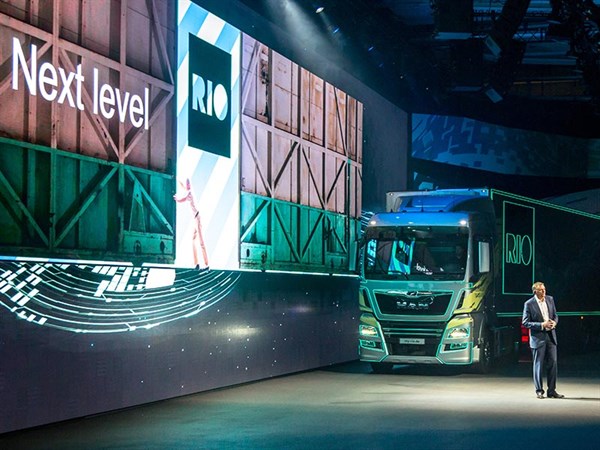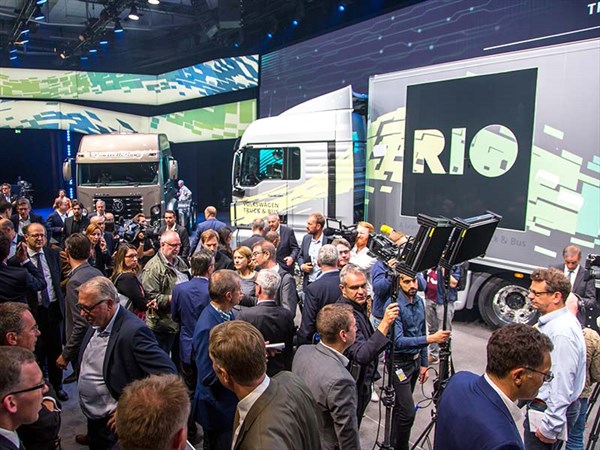The German manufacturer will launch RIO next year, a universal fleet management platform that it hopes will be a one-stop shop for operators
Volkswagen Truck & Bus is looking to ‘fundamentally change’ the transport industry with the launch of its RIO cloud-based operating system.
RIO, which will go online in 2017, is an online platform that will provide fleet management and telematics support for transport operators.
Volkswagen believes it will be a one-stop solution for the industry, one that will suit all vehicle makes and types and remove the need for companies to accommodate multiple services.
The company’s plans, announced in the lead up to the IAA Commercial Vehicle Show in Hannover, Germany, would see its open-source system cover all information associated with the supply chain, from truck types and payloads to traffic and weather issues.
“RIO will fundamentally change the world of transportation as we know it,” Volkswagen Truck & Bus CEO Andreas Renschler says.
“For the first time, our unified platform enables the registration, management, and integrated use of all data and information available in the transportation system.”
The truck maker says the solution will connect all players in the industry, from shippers to customers, and utilise “intelligent algorithms” to analyse “information from tractors, trailers, bodies, drivers, and orders as well as combining this information with traffic, weather, or navigation data” to “provide its users with concrete recommendations for action in real time.”
Promising to improve both efficiency and transparency gains, Volkswagen believes it can remove the need for operators to use a variety of software systems, instead aggregating all sources of data into “a common platform … that can be used regardless of the vehicle brand or telematics system.”
Renschler says this approach is “beneficial for our customers because it makes their business more profitable.”
“And it is good for the environment, because we will see fewer empty trucks on the road,” he says.
Focusing initially on its MAN brand, where all trucks will ship with the technology as standard from autumn next year, Volkswagen says the system will be able to be retrofitted into all vehicles.
Once fitted with the technology, the company says updates will be automatic. It predicts around 40 updates per year.
MAN Truck & Bus AG CEO Joachim Drees says that, through its one-size-fits-all approach, the solution aims to break down barriers.
“What we can see emerging here is a platform where each user will benefit individually from its added value — regardless of how the fleet looks, which vehicle with which body is carrying the sales order, and which logistics software is used,” Drees says.
“Logistics 4.0 can only succeed if artificial barriers and data islands are overcome.
“That is why we are making every effort to support the development of RIO.”
While it appears to be targeting big fleet operators, Volkswagen says it does have benefits for small- and medium-sized fleets.
“RIO provides the perfect opportunity to take advantage of the benefits of digitisation without the need to have strong IT skills or specially trained experts,” it says.
“Similar to operating systems of smartphones, various apps can be used with RIO that are intuitive in their operation and run in any standard web browser.
“There will be vehicle-specific services — e.g. from MAN or Scania — but also a marketplace for cross-vendor apps or those of third-party providers.”
To meet this end, the German manufacturing giant is looking for partners to help.
MAN chief digital officer Markus Lipinsky says potential partners need to have “the same objective: to optimise the global transportation chain, thereby reducing costs and emissions”.
“It is not about launching another telematics system,” he says.
“Instead, we deliberately designed RIO as an open platform that brings together the numerous island solutions.”
While the company is still seeking external help, Renschler says RIO will “be available in a few months”.
“The future of transportation does not begin in 2025, but right here and now,” he says.




